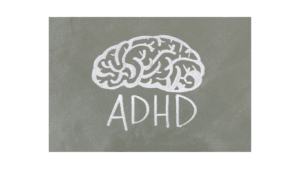Understanding Adverse Childhood Experiences (ACEs)
Adverse Childhood Experiences (ACEs) refer to potentially traumatic events that occur during childhood, such as abuse, neglect, or family dysfunction. These experiences can profoundly impact a person’s emotional development, sense of security, and ability to trust others.
For many, ACEs create an internal struggle—fears of abandonment, difficulty forming relationships, and a persistent sense of unease may follow into adulthood. The very people who were meant to provide love and protection may have been sources of pain, leading to a lack of trust not only in others but, at times, in God.
The Challenge: Trust and Security Wounds
When childhood experiences are marked by instability or harm, developing a solid sense of trust can become challenging. These wounds may manifest in several ways:
- Lack of Trust in Others: Early betrayals by caregivers can make it challenging to trust authority figures, friends, or partners.
- Sense of Insecurity: Without a foundation of safety, individuals may struggle with feelings of anxiety, hyper-vigilance, or fear.
- Parental Relationship Struggles: Unresolved trauma may affect how someone views parental roles—feeling distant from their parents or carrying their pain into how they parent their children.
These emotional and spiritual barriers can create a sense of isolation and even a distorted view of God’s character, primarily if a person unconsciously associates God with the imperfect authority figures of their past.
The Solution: Restoring Trust Through Faith
Healing from ACEs is not just about overcoming the past—it’s about rebuilding trust in human relationships and God. Here’s how faith can play a transformative role:
- God is Loving: The wounds of the past may tell us that love is conditional or unsafe, but Scripture reminds us that God’s love is steadfast. “The Lord is compassionate and gracious, slow to anger, abounding in love.” (Psalm 103:8)
- God is Good: Even when life has been painful, God’s goodness remains constant. He does not cause harm but walks us through our suffering, desiring to bring us healing and hope. “Taste and see that the Lord is good; blessed is the one who takes refuge in Him.” (Psalm 34:8)
- God Uses Every Wound: No pain is wasted. God redeems our brokenness, using every experience to shape us for His purpose. “And we know that in all things God works for the good of those who love Him.” (Romans 8:28)
Steps Toward Healing
- Acknowledge the Pain: Healing begins by recognizing the impact of ACEs and allowing yourself to grieve the losses of the past.
- Seek Professional Support: Trauma-informed counseling can provide practical tools to process memories, rebuild trust, and manage emotional responses.
- Reconnect with God: Through prayer, meditation, and scriptural reflection, open your heart to the truth of God’s unwavering love and His desire to see you whole.
- Build Safe Relationships: Surround yourself with supportive, trustworthy people who reflect God’s grace and help you practice healthy, secure attachments.
A Journey of Hope
Healing from ACEs is a courageous journey—one that blends professional guidance and faith. While childhood scars may run deep, they do not define your future. Trust can be restored. Security can be rebuilt. And God’s love remains a constant, guiding light.
Remember, you are not alone. God walks with you, using every wound, every tear, and every step to draw you closer to healing and purpose.
If you are curious about how your own childhood experiences may be impacting you, we offer the ACEs questionnaire as a tool to understand your story better. This can be a first step in uncovering the past and moving toward healing. Reach out to us today to learn more.

About the Author
Janice Cox, LPC, is a dedicated therapist with 12 years of experience working with children, adults, couples, and families. Holding a Bachelor’s degree in Biblical Studies and a Master’s degree in Professional Counseling, Janice integrates evidence-based counseling techniques with Christian faith to provide compassionate, faith-centered mental health care.








